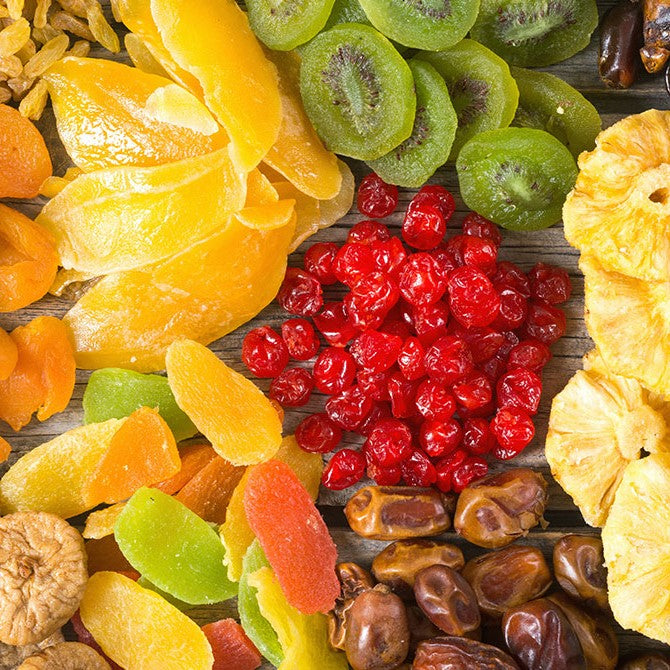
What are the Health Benefits of Dried Fruit?
When you compare dried fruits to fresh fruits, fresh fruit has approximately the same amount of nutrients as does a piece of dried fruit – so to speak. The nice aspect with dried fruit is that, in addition to being nutritious and sweet, its packaging is considerably condensed. Dried fruit, by weight, contains as much as 3.5 times the minerals, vitamins, and fiber of fresh fruit.
Compared to fresh fruit, however, dried fruit can have a higher glycemic index because it is often times higher in sugar. On the other hand, to speed up weight loss, some individuals enjoy dried fruits such as apricots, raisins, dates, prunes, and more (in addition to certain types of nuts) instead of other desserts.
The health benefits of dried fruits consist of the following (certain benefits are dependent on the type of fruit in question):
- Good source of fiber.
- Fat-free and cholesterol-free.
- Polyphenols in particular, an excellent source of antioxidants.
- Contain good amounts of fiber.
- May decrease oxidative damage.
- Encourage better digestive health.
- May improve blood flow.
To replace white or processed sugar, because of the sweetness in dried fruits, they may be used in baked goods. To enhance nutrition, many people like to add dried fruit to smoothies and milkshakes, also making them more flavor-dense, taste-dense, and filling. To all milk-based drinks and foods, and to milk itself, dried fruits are natural allies.
Other recipe uses include mixing dried fruits in breads, cookies, trail mix, rice, cakes, salads, and more.
Then again, some people simply like to grab a handful of dried fruit – just as it is – as a delicious and nutritious snack.
